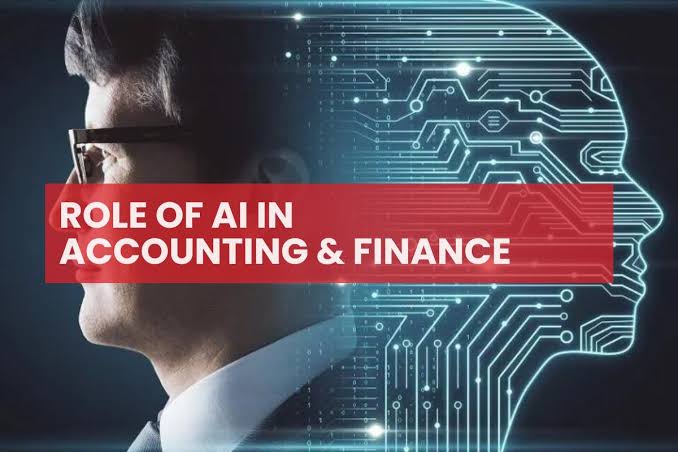The Role of AI in Automating Financial Transactions and Bookkeeping
Explore how artificial intelligence is transforming financial transactions and bookkeeping by enhancing efficiency, accuracy, security, and compliance, while also reshaping the roles of financial professionals.
AI Automation | August 19, 2024
Explore how artificial intelligence is transforming financial transactions and bookkeeping by enhancing efficiency, accuracy, security, and compliance, while also reshaping the roles of financial professionals.
The integration of artificial intelligence (AI) in financial transactions and bookkeeping is transforming way businesses manage their finances. Role of AI in this sector goes beyond simple automation. It touches on areas such as accuracy efficiency, security and strategic decision-making. As businesses increasingly adopt AI-driven tools landscape of financial management is undergoing a profound shift. This shift promises to redefine traditional practices of bookkeeping and financial transactions
### Significant Impacts of AI in Financial Transactions
One significant impact of AI in financial transactions is automation of routine tasks. In past tasks such as invoice processing, expense management and transaction categorization required substantial manual input. This often led to errors and inefficiencies. AI systems can now automate these processes with remarkable accuracy. This reduces need for human intervention. For example AI algorithms can automatically categorize expenses by analyzing transaction data. This makes it easier for businesses to track spending patterns and manage budgets. This level of automation not only saves time but also minimizes risk of human error. It ensures that financial records are accurate and up-to-date
AI's ability to process and analyze large volumes of data quickly and accurately plays crucial role in enhancing financial decision-making. Traditional bookkeeping methods often involve manual entry and analysis of data. This can be time-consuming and prone to errors. AI-driven tools can process vast amounts of financial data in real-time. They provide businesses with insights that can inform strategic decisions. For instance AI can analyze cash flow patterns. This helps predict future financial needs. It assists businesses to manage resources more effectively. Additionally, AI can identify trends and anomalies in financial data. These may indicate potential issues such as fraud or inefficiencies. This enables businesses to address problems before they escalate
In realm of financial transactions AI is also making significant strides in enhancing security and fraud detection. Financial fraud is growing concern for businesses. Cybercriminals are becoming increasingly sophisticated in their methods. AI-driven systems can analyze transaction patterns and detect unusual activities that may indicate fraudulent behavior. By using machine learning algorithms, these systems learn from historical data and improve accuracy over time. This makes them more effective at identifying and preventing fraud. This level of security is particularly important for businesses that handle large volumes of financial transactions. It helps protect sensitive data and reduce risk of financial losses
Another important aspect of AI in financial transactions and bookkeeping is ability to streamline compliance with regulatory requirements. Businesses are subject to various financial regulations that require them to maintain accurate records and report financial activities timely
Compliance can be complex and time-consuming process. This is particularly true for businesses that operate in multiple jurisdictions with different regulatory frameworks. AI can automate compliance tasks by monitoring financial transactions. It can generate reports that meet regulatory standards
This not only reduces burden on businesses but also ensures that they remain compliant with all relevant regulations. Thereby avoiding potential fines and legal issues
AI's impact on bookkeeping is also evident in way it is changing role of accountants and financial professionals. Traditionally bookkeeping has been labor-intensive process that required significant manual effort. However, with advent of AI many routine tasks associated with bookkeeping are being automated. This automation is freeing up accountants to focus on more strategic activities. For example, instead of spending time on data entry and reconciliation accountants can now use AI-driven tools. They analyze financial data and provide insights that can help businesses make informed decisions. This shift is transforming role of accountants from number crunchers to strategic advisors. They play key role in driving business success.
Moreover AI is enabling creation of more personalized financial services. By analyzing individual financial behaviors and preferences, AI systems can tailor financial products and services to meet specific needs of each customer. This level of personalization is particularly valuable in context of financial planning and investment management. Here AI can provide customized recommendations based on customer’s financial goals, risk tolerance and investment horizon. As a result businesses can offer more targeted and effective financial solutions. This enhances customer satisfaction and loyalty
Despite many benefits of AI in financial transactions and bookkeeping there are also challenges that businesses must consider. One of primary concerns is potential for job displacement as AI takes over tasks traditionally performed by humans. While AI can significantly improve efficiency and accuracy, it is important for businesses to manage transition carefully. They must ensure that employees are not left behind. This may involve reskilling and upskilling workers to take on new roles that leverage AI-driven tools. Moreover ensuring balance between automation and human oversight is crucial
In conclusion AI is playing increasingly important role in automating financial transactions and bookkeeping. It offers numerous benefits in terms of efficiency, accuracy security and compliance. As businesses continue to embrace AI-driven tools, the landscape of financial management is likely to evolve further. AI will become integral part of financial ecosystem.
However it is essential for businesses to approach this transformation thoughtfully. They must balance advantages of automation with need to support and develop their workforce. By doing so, businesses can harness full potential of AI to drive financial success and remain competitive in increasingly digital world
